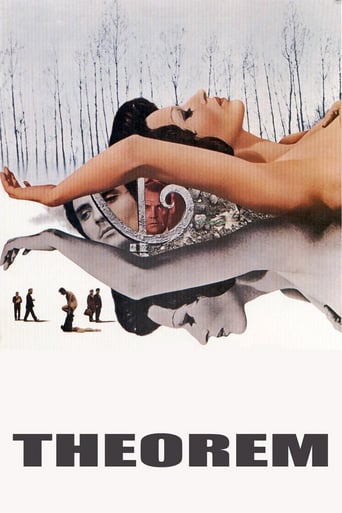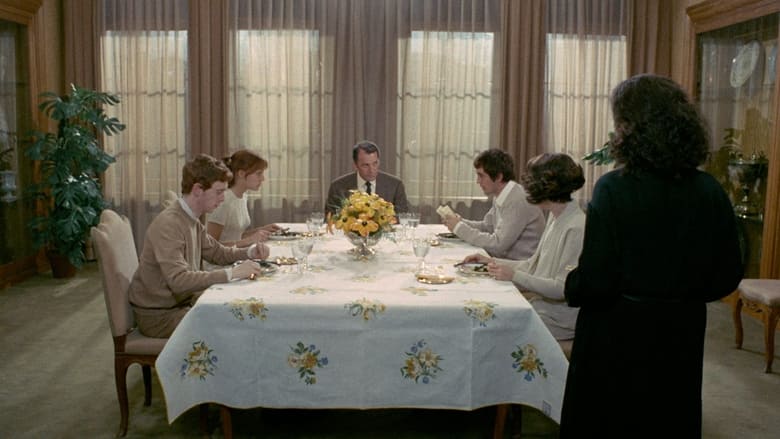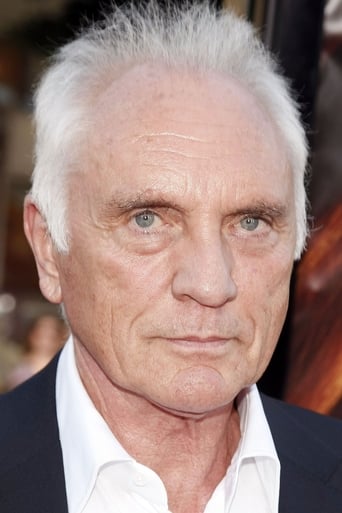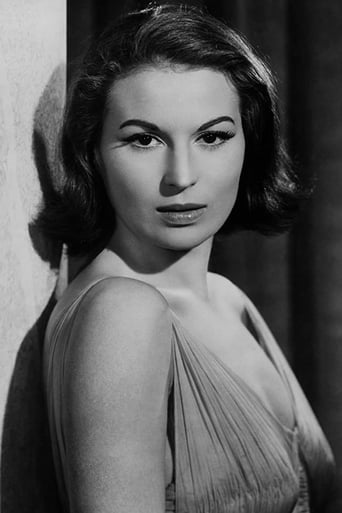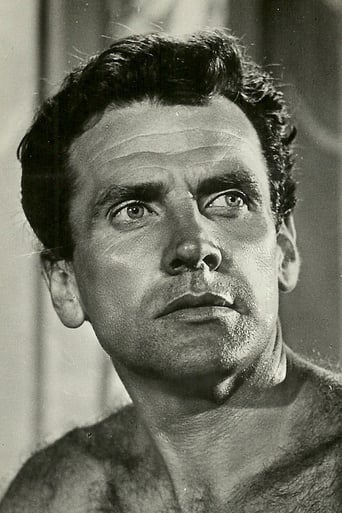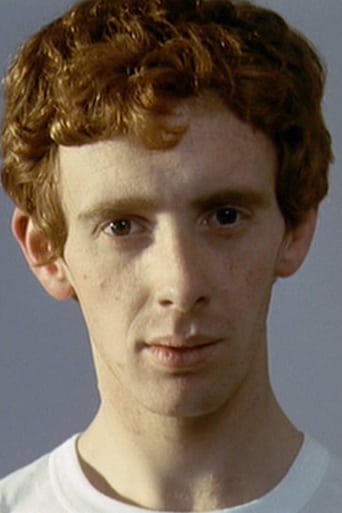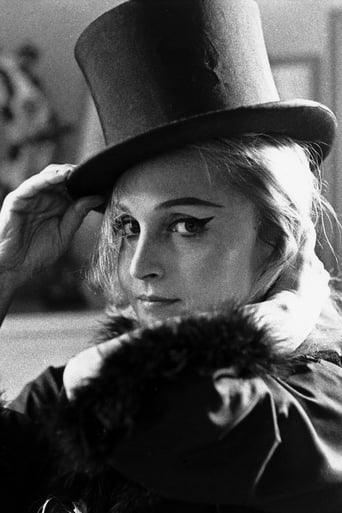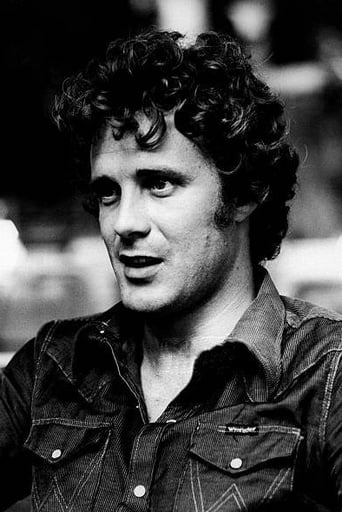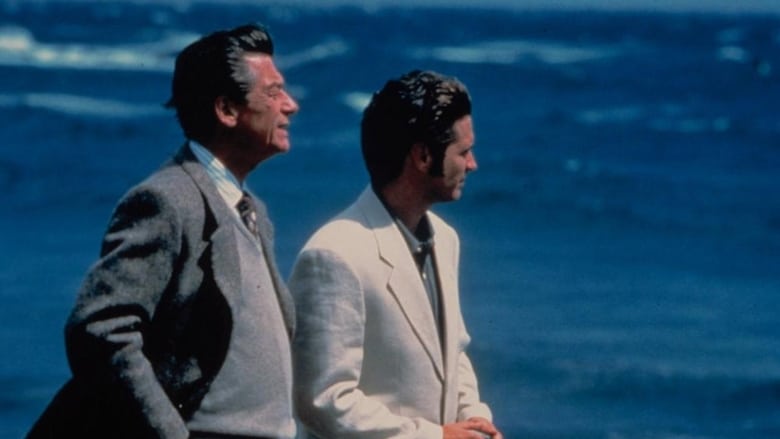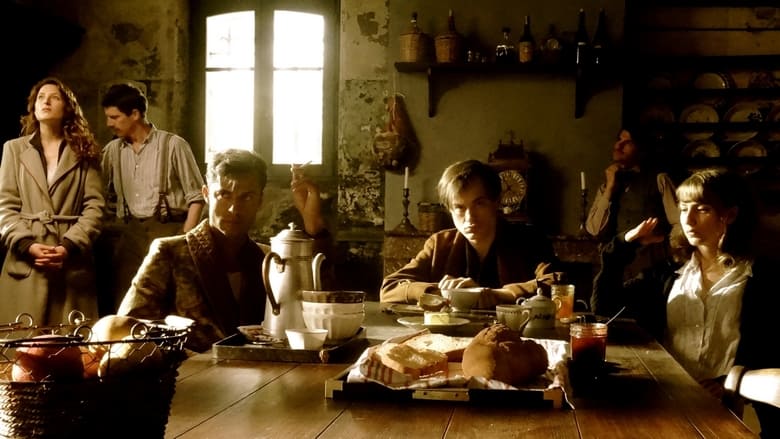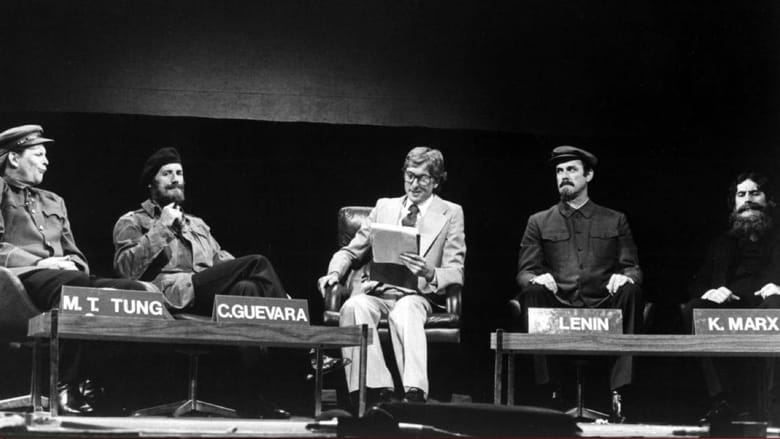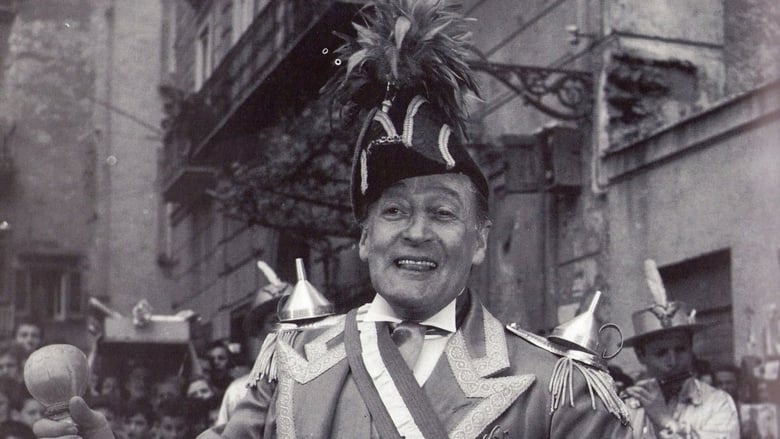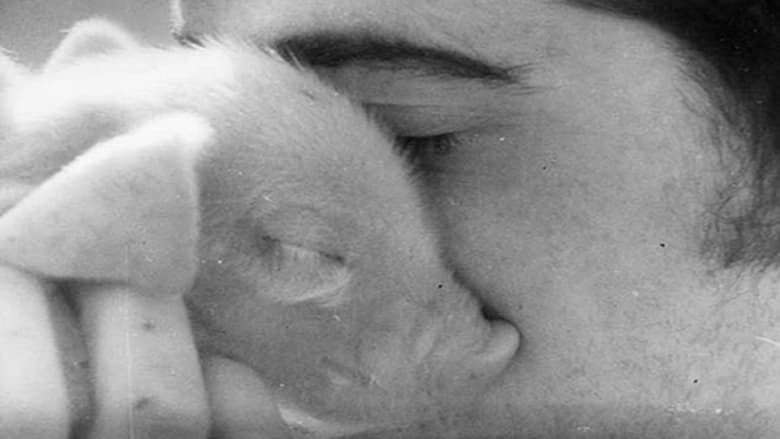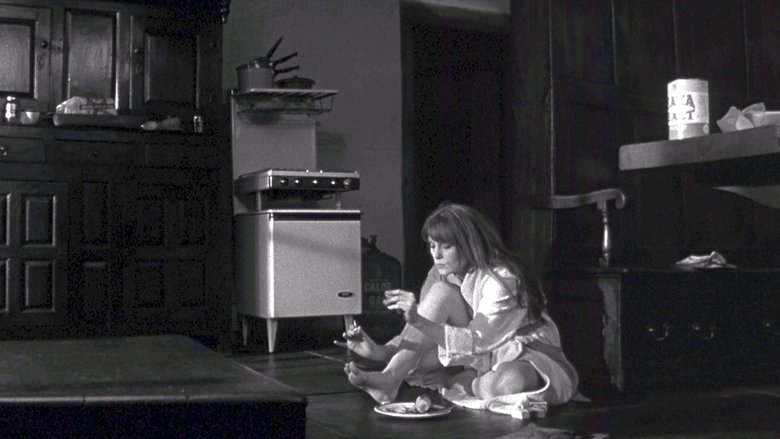A wealthy Italian household is turned upside down when a handsome stranger arrives, seduces every family member and then disappears. Each has an epiphany of sorts, but none can figure out who the seductive visitor was or why he came.


Similar titles

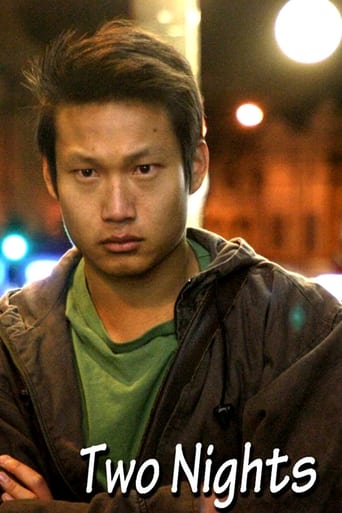


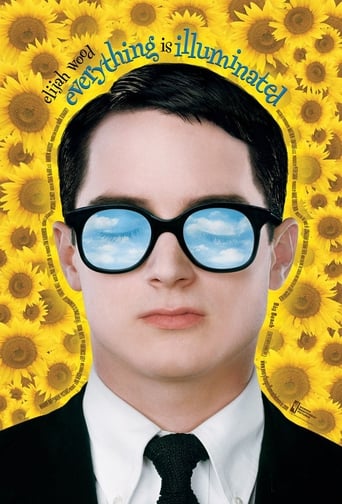

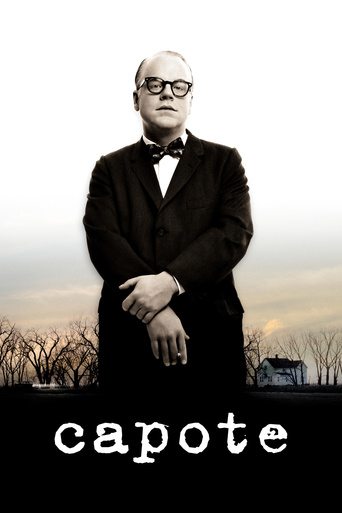
Reviews
At the beginning of "Teorema", in a wordless, sepia-tinged montage, we are introduced to almost all the main characters in Pasolini's film. It's a clever device, almost Hitchcockian, and it could be the beginning of a thriller, though being a Pasolini film we know this won't be a thriller. The character who doesn't appear in this montage is played by Terence Stamp but suddenly there he is right in the middle of things and his affect on everyone is profound. Who is he and why is he here? It's never made clear, of course. Although a very physical presence his role is allegorical. Is he an angel, (there is a strong religious element in the picture), or a devil or simply a seducer since he does seem to have sex with everyone in the family, male and female, including the maid who ends up levitating and performing miracles. He certainly affords everyone a form of release, turning their lives upside down and with it their bourgeoisie pretensions. If we are going to tear down the bourgeoisie we may as well do it with sex; it's a lot more fun than beating them to death.Stamp, of course, remains the most beautiful thing on screen though Silvana Mangano as the mother gives him a run for his money. No-one really has to act; all they simply have to do is respond to Pasolini's camera and, with no real narrative structure, that's fairly easy. Sex may be Pasolin's weapon of choice but the film is quite clearly a Marxist 'fantasy' and is also very obviously the work of a gay director. I'm not so sure anymore if it's the masterpiece I thought it was all those years ago bu it stands up remarkably well and remains one of the great Italian films of its decade.
Ranks alongside his "Gospel According to St Mathew." I saw several metaphorical links in "Theorem" to Fellini's "Nights of Cabiria," a film scripted by Pasolini; the contribution of Pasolini to the lovely Fellini film is often overlooked.The allusion to the Terrence Stamp character as Christ is not difficult to pick up. The political context is also more than obvious. "Theorem" encapsulates all of Pasolini's genius evident elsewhere, in one work.Here's a Pier Paolo Pasolini film that's different--he uses good looking established actors unlike his other works where he would pick actors unknown and less attractive. In "Theorem" the good looking characters are contrasted with the ugly, non-professional actors intentionally.The film might appear overtly to be about sex but Pasolini's canvas captures a lot more than the obvious. Brilliant casting. Mozart's "Requiem" rendered by the Russian Academy Choir is transcendental. Morricone's use of wind instruments is so different here but captures the mood of loneliness. Terrence Stamp is the eye candy of the film, just as he was in "Far from the Madding Crowd". All three ladies: Sylvano Mangano, Laura Betti and former Mrs Jean Luc Godard (Ann Wiazemsky) give more than interesting performances--each body movement tells you so much. Words are rarely required to communicate in "Theorem"; visuals and music do more in that department.
The prologue of this movie is actually the epilogue. Pasolini emphasizes the artistic freedom to turn the world inside out and fictionally destroy all conventions. In a pseudo-documentary vignette intellectuals debate with the new industrialists {formerly "the workers"} and future plutocrats as to whether they will become subsumed by the bourgeoisie as a result of being inevitably corrupted by the trappings of wealth and power.In the jump between the main story and the prologue a motif, {repeated throughout the entire movie}, of the Hebrews wandering in the wilderness, hoping to find the Promised Land, is insertedWe are introduced to the nuclear family in its bourgeois construct as an Industrialist with huge factories and a magnificent Milanese villa, his trophy wife, a beautiful female, sybaritic, vacuous and fashionably attired and coiffured, as befits her class, their son Pietro and daughter Odetta. All of them are illustrated as typically bourgeois, self-satisfied and complacently entitled to lead their lives empty of meaning. All bourgeois households of their class have servants and the religious peasant Amelia runs their household.Pasolini then has a metamorphic agent, the boyish Terence Stamp, enter into their idyll. A cypher for the creative force of the auteur Pasolini himself, "the boy" insinuates himself into the individual lives of each of the five personae in the household. First, for no explicable reason other than the sexiness of his appearance, {Pasolini's homosexuality focuses on Stamp's prettiness and young slender physique}. Stamp's personality is quite reserved and introverted, so although he is seen to be reading the iconic gay poet Rimbaud, and playing the fool in a boyish way, we are never quite convinced of any intellectual passion. The five seductions are all carnal, starting with the peasant Amelia, who is overwhelmed by Stamp's "aura" and, initially trying to avoid her "fall" by attempting suicide, succumbs to her desire for sexual congress with "the boy". In quick succession "the boy" inducts the younger son into the homosexual life. Here the thought occurs that a typical initiation into homosexuality by the older man would most likely be Pasolini's personal narrative, especially, as the story develops we see the son overcome his anguish by sublimating into the arts, as Pasolini himself, did. Next "the boy" is seduced by the mother and then the daughter pulls him into the bedroom. Finally the heterosexual father {in a typical gay fantasy "all straight men are potentially gay" } is seduced by "the boy". Having performed his role of alchemical mischief we are introduced to Tolstoy's novella "The Death Of Ivan Ilyich" when as if enacting the final chapter, the father falls ill and "the boy' takes his legs and holds them above his head giving him relief - it should be noted that Nabakov lectured on this work stating that Tolstoy considered bourgeois hypocrisy to be a moral death or suicide of the soul.Then, suddenly "the boy" - the revolutionary agent of transformation - announces his abrupt departure {this takes place almost exactly half way into the movie}. Like the aftermath of a bad L.S.D. trip, {Pasolini created this movie in 1967 at the height of the 60's revolution}, the confusion and dismay of the five individuals are the necessary results of picking up the pieces, and living a life with new values, and the meaninglessness of the past.Of the five the most personal is the son Pietro, who leaves home to take the path of the artist {Rimbaud's calling} and become a painter {deeply inspired by a coffee table art book of Francis Bacon}. He muses that now that his past delusions of normality were shattered by his realization of his homosexuality, he must embrace his difference and become a creative power himself. He becomes a painter and paints on glass reminiscent of Duchamp's "Bride Stripped Bare" - he goes through many changes and humiliations, eventually restoring his equilibrium and health, by realizing the inconsequence of his life in relation to the universe. Here you have Pasolini's personal odyssey integrated into the story.As to the other players, Amelia the servant returns to her country roots, where she becomes an austere penitent, and performs the Catholic miracle of levitation, only to be buried by an old peasant woman {played by Pasolini's mother} and once again with reference to Tolstoy's "Death of Ivan Ilyich" she declares that she is not dying but acting out of sympathy for those that are still living in moral death, aka the bourgeoisie. The mother in true homosexual style becomes a woman driven to find young boys { as in gay "cottaging", rent-boys, etc,}, and has anonymous sex with them. We leave her in a state of ungratified anguish. Odetta, the daughter {described by her mother as "caught up in the Cult of Family"}, allows her life force to seep away, while the father gives away his factories, and strips himself naked, ending up like his wife, wandering in the wilderness with no hope of finding the Promised Land.Another peculiarity of this beautifully framed cinema is Pasolini's gay framing of the male crotch which is in contrast to the usual Hollywood focus on the female mammary, buttocks and legs. There is also some clothing fetishism with the camera lovingly gazing at the male Y-fronts. {underpants}At the end of the explication of a theorem "Q.E.D." is affixed "that which has been demonstrated". I recommend this movie to those that are interested in the art of the 60's, gay art, revolutionary politics, and Surrealism in cinema. Its a mind blowing experience!
You may call me a seasoned film watcher who is willing to ponder over the possible intentions of the narrative. However, to me the film Teorema is devoid of any rational or logical meaning. A possible label of the style is surrealism, but surrealists employ a certain realism, albeit twisted, accuracy and precision. The story of Teorema is too sloppy and incoherent for that. Perhaps the best description is to compare the story to (post)modern art, which carries a similar message of laziness, fraud and swindle. In order to warn you, let me briefly sketch the events. The main characters are a bourgeois family, consisting of two parents, a son, a daughter and a housekeeper. A friend of the son visits the family, and starts sexual relations with everybody, except perhaps the father. He does not seduce them, but simply yields to their wishes. When he leaves, the inmates admit that their lives have been shattered. The housekeeper becomes a saint with divine powers, and finally merges with the earth. This daughter gets into a state of coma. The mother becomes a promiscuous nymphomane. The male characters develop the most interesting signs of disorder. The father wants to go back to his inner self. He gives his possessions to his employees, undresses, and runs into the desert. The son becomes a painter, who hides his lack of skills under a mask of conceit. There are certainly allusions in the film, but none of them takes the lead. For instance, it is possible that the painter is meant to portray the film maker, but the evidence is poor. Evidently, the film in itself makes no sense whatever, so that we have to base our interpretation on other sources. It was made in the days of la nouvelle vague, which produced films like "Tout va bien" (France) and "De minder gelukkige terugkeer van Joszef Katus naar het land van Rembrandt" (Netherlands). These stories are somewhat mysterious, and invite the viewer to make his own interpretation. The viewer is supposed to become a participant, and in fact the players sometimes directly address the audience. Typical for the nouvelle vague is also the moving camera. In Teorema these ideas are carried through to the extreme, leading to the above bizarre result. Another source is the Italian society. In those days she was a bizarre mixture of Bolshevism and Catholicism. A film maker had to address both cultures in order to create a commercial success. The only way to please both audiences is to say nothing, and this is precisely what Teorema does. Both the Bolshevists and Catholics are appeased by the display of their symbols, and the Catholics are only mildly provoked, suggesting that Pasolini is one of theirs. In fact the catholic spirit permeates most Italian films, even "La terra trema", which is supposed to be a socialist produce. You can not wipe out two millenia of history in a view decades. In conclusion, even the context of Teorema does not allow a satisfactory interpretation. The film can be seen as a glorification of Catholicism, socialism, promiscuity, art and culture, Freudian psychology, or simple life. Perhaps the wrath of God is actually the best explanation for the events. However, in another interpretation it is a plea for fascism or chastity. Or perhaps it is a self-portrait of the makers, and the chaos in their brains. Or the chaos of the (any) elite, which would be alarming. Only one thing is certain: Teorema is innovative. But not every innovation is an improvement. If you prefer social realism, consider seeing my other reviews.
